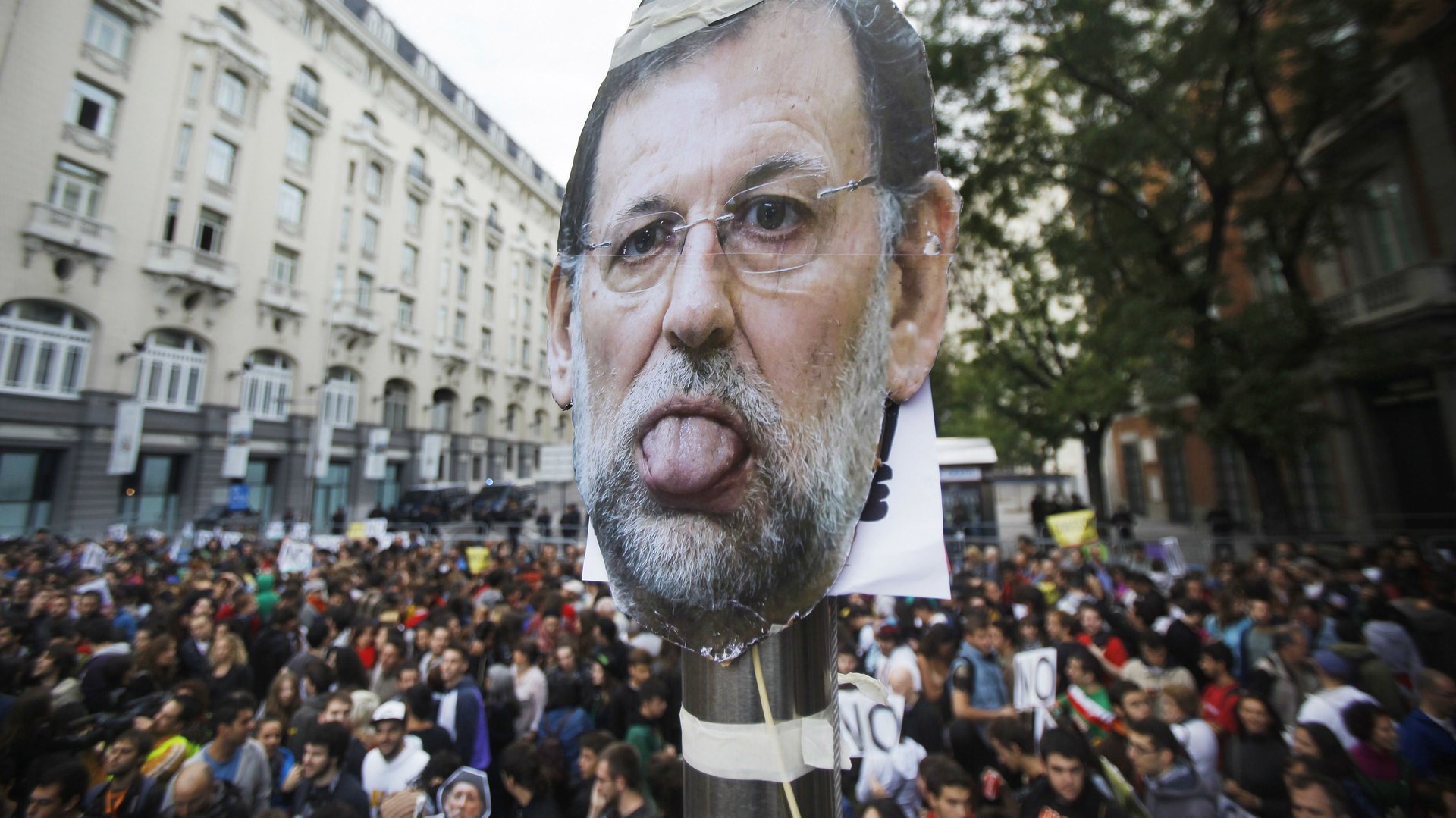Bad bank loans, skyrocketing debt, and a deepening recession spell bailout. So what is Spain waiting for?
Europe’s leaders gather today for a summit under the gray skies of Brussels, and even darker clouds of the euro zone crisis. High on the agenda will be what to do about Spain, where the situation keeps getting worse.

Europe’s leaders gather today for a summit under the gray skies of Brussels, and even darker clouds of the euro zone crisis. High on the agenda will be what to do about Spain, where the situation keeps getting worse.
Today’s development: bad Spanish bank loans hit new highs in August, rising to 10.5% as a percentage of total loans,or €5.3 billion ($6.9 billion), up from 10.1% in July. The total amount of loans in arrears now sits at a staggering € 178 billion. It’s the 17th month in a row that the ratio has risen.
Although the numbers were largely expected, it’s yet another sign that it may be time for Spain to ask for help.
Spain’s economic situation has continued to deteriorate, while markets await a financial aid request from Madrid. For months the Spaniards have played it cool.
Indeed it’s investors that have helped keep Spain in a strong negotiating position. Pressure to ask for help eased, first when the European Central Bank offered to buy unlimited amounts of sovereign bonds, and then on news that Moody’s wouldn’t downgrade Spanish bonds to junk, at least not now. Spain’s 10-year government yields dropped to levels not seen since April, after the Moody’s news. Today, Spain’s benchmark bonds rose for a third straight day after Spain exceeded its maximum target in an auction.
The sheer magnitude of the problem has also given Spain leverage. The eurozone’s fourth-largest economy has economic output twice the size of that of Cyprus, Greece, Ireland, and Portugal combined. A Grexit is like a candle on the cake of a Spanish exit.
Charles Randell, whose law firm Slaughter and May is helping clients navigate the crisis, says that the Spanish strategy to delay, bluff and act cool, while others grow increasingly desperate, has so far worked. Terms offered for a European bailout, which most see as inevitable, could be fairly friendly.
Randell invokes an old saying:
If you owe your bank $100, it’s your problem. If you owe your bank $100 million, it’s their problem. Spain is in the latter category.
But the Spaniards’ waiting game may be coming to a close. Spain’s debt burden is unsustainable in the long-term with the IMF forecasting it to rise to 90% of GDP by the end of this year. The economic situation is deteriorating with S&P just last week lowering its rating of Spain to one grade over junk. Meanwhile, the recession is only expected to get worse as Rajoy’s austerity measures bite into tax receipts. It may be time to say uncle, or should we say, tío.
You never know. It could happen today at the summit.